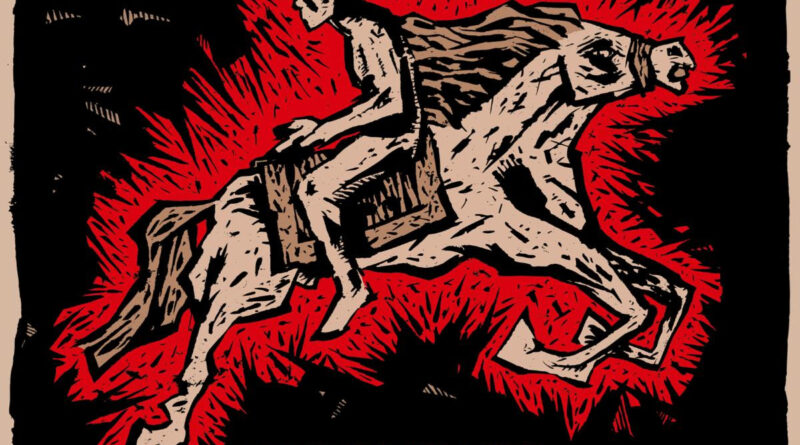ALBUM REVIEW: In Der Gegenwart Der Vergangenheit – Friedemann
In Der Gegenwart Der Vergangenheit, a German phrase which means “in the presence of the past”, is the title of this back-to-basics album from one of Germany’s most intriguing DIY folk artists, FRIEDEMANN. Unfortunately, and the language barrier is only part of this, this album is a disappointing and unimaginative listen.
We start off pretty strong. Das Sammeln Von Licht is an intriguing opener, a track which establishes a rich and sombre folk style, and might inspire you to go away and look up a google translate of the lyrics. It sets up the album to be a more ethereal folk offering, one which is to be taken seriously and listened to alone on a quiet night. Instead, we are brought back to earth with the frankly bizarre opening to Wo Wir Ankommen which takes all that maturity and throws it in the bin with a “nah nah nah nah” intro and some incredibly cheesy handclaps. There are other moments on the album where the song-writing does just seem a little… silly. It’s a shame, because a whole album of weird, introspective and existential folk would have suited this sort of release a lot more.
The guitar solo on Ohne Dich is worth a mention – one of the few moments on the album where there is a genuinely interesting use of texture. It’s a shame, because moments like this betray the fact that this artist has some interesting ideas. Monster is also an enjoyable, if unoriginal song.
But the lasting impression this album leaves is one of disappointment – there’s nothing especially wrong with it other than the odd vocal wobble (not an inherent negative since it kind of adds to the rustic feel) but there’s nothing which grabs you at first listen. It’s predominantly a voice and a guitar singing relatively obvious melodies and playing pretty simple chord progressions. Not much to write home about.
Now let’s address the elephant in the room. This album is a stripped back, minimalistically-produced folk album where the vocals are front and centre in the mix, to ensure that not a word is missed. And it’s entirely in German. Whilst, obviously, this isn’t an inherent problem – German is a wonderfully expressive language – the main focus of the album, the lyrical content, is completely lost on a non-German speaker. Not that the album would have been better in English, but if you can’t understand the words and the song-writing sounds kind of bad anyway, then what do you have left?
The instrumentation on the album is just not that interesting. With not much instrumentation to back him up, the weakness in FRIEDEMANN‘s vocal is made quite apparent – the tone often betrays his limited range, with audible straining at its edges. As mentioned previously, it’s not an inherent problem; many vocal quirks can come from weaknesses like this, but, again, it’s just not backed up in any way by the arrangements, or the song-writing itself.
Overall, we are sorry to report, that this is just not really worth your time. Maybe look up what the lyrics mean and just read them, instead.
Rating: 3/10

In Der Gegenwart Der Vergangenheit is out now via Exile On Mainstream.
Like FRIEDEMANN on Facebook.

